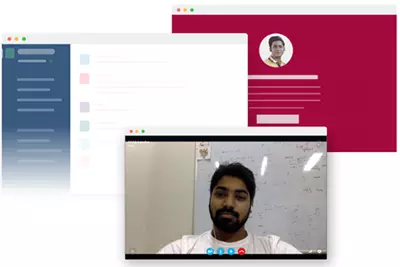Microsoft has developed open source programming to create computer-aided reasoning models. Be that as it may, the group has recently changed tack and decided to work even more closely with Facebook and go ahead with the development of Facebook's personal brand of free AI programming.
Microsoft didn't emphasize the change too much. In either case, it reflects the ability to support programs that originate from several real innovation organizations rather than simply focusing on other phases.
Google is the organization behind what is probably the most well-known open source AI programming, TensorFlow, which was released in late 2015. Microsoft put its Cognitive Toolkit, or CNTK, programming on GitHub and gave it a code approval. opened more lenient in mid-2016, and Facebook later in 2016 released PyTorch, its answer to TensorFlow.
Microsoft's framework has qualities, particularly for building speech recognition frameworks, but PyTorch has been quick to sift through the options and turn them into their own fascinating and specialized aspects, Kevin Scott, Microsoft's central director of innovation, told CNBC in a recent interview. session this week.
A year ago, Scott met with Mike Schroepfer, chief innovation officer at Facebook, and decided that it would be useful for organizations to work on defragmenting "some of the complexity" in the biological programming system that humans can use to organize models of AI. In September 2017, Facebook and Microsoft jointly introduced ONNX, an open source mode dispatch programming made with an AI programming system, just like Microsoft's Cognitive Toolkit, so they can be used to make predictions. with completely different constructs to create Facebook's PyTorch.
The reality is that there is simply too much variety in AI designs, said Sai Soundararaj, co-founder and CEO of AI startup FloydHub. The startup's cloud win has bolstered Microsoft's cognitive toolkit, but customers haven't used it much, Soundararaj said.
Microsoft hasn't given up on the Cognitive Toolkit, even if it's dedicated to completely different tasks. Microsoft's schedule is still updated.
However, the direction is clear. "The power of the network really revolves around PyTorch and TensorFlow, as that's where most of our focus has been," said Eric Boyd, corporate vice president of AI Stage at Microsoft. "Group appropriation of individuals is colossally imperative."























